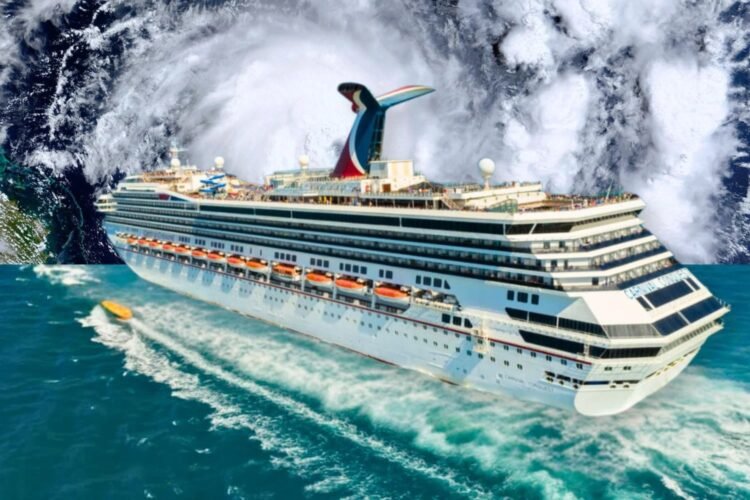More than a decade after it drifted into infamy, the Carnival Triumph still haunts headlines — now resurrected in Netflix’s chilling documentary, Trainwreck: Poop Cruise. But behind the jokes and viral memes lies a cautionary tale of corporate neglect, human endurance, and a luxury cruise that devolved into a floating disaster zone.
A Dream Voyage Doomed from the Start
The Carnival Triumph departed Galveston, Texas, on February 7, 2013, with over 4,000 passengers and crew on board. Bound for Cozumel, Mexico, the cruise was billed as a relaxing four-day escape. But even before it left port, the ship was already operating under questionable conditions.
According to later investigations, only four of six diesel generators were functional. The remaining units — including generator No. 6, the one that eventually caught fire — had a history of deferred maintenance and fire-related vulnerabilities.
Weeks earlier, Carnival had issued an urgent directive across its fleet: reinforce fuel lines to prevent the very kind of fire that would later cripple the Triumph. But not all upgrades had been completed — and below the deck, danger was quietly brewing.
Fire, Failure, and Floating in Filth
On February 10, generator No. 6 ignited when unshielded fuel sprayed from a flexible hose. The fire knocked out the ship’s power — leaving it dead in the water, adrift in the Gulf of Mexico. Propulsion, lighting, air conditioning, and most critically, plumbing, all failed.
Human waste began backing up into cabins and hallways. Toilets overflowed. The crew handed out red biohazard bags for passengers to use instead. Soon, decks were lined with sewage. “We’re talking about raw sewage at just the end of our deck alone,” one passenger recalled.
With no ventilation in the scorching heat, passengers slept outside on deck, creating makeshift tents from bedsheets and bathrobes. Bottled water and food became scarce. Fights broke out. Some hid rations to avoid theft. The atmosphere turned desperate.
Helicopters, Headlines, and Humiliation
As the ship drifted northward, the media frenzy took hold. Helicopters circled overhead. News outlets offered wall-to-wall coverage. Saturday Night Live lampooned the situation. The name “poop cruise” stuck — and spread like wildfire.
Behind the headlines was real human suffering. Joy Dyer, one of the passengers, texted her husband: “Floating waste is all over the place. Slick floors are usually human waste overflows. Smell is rank.” Others reported looting and confrontations over supplies.
After four excruciating days, tugboats finally towed the Triumph to port in Mobile, Alabama — far later than passengers had been told.
What Carnival Knew — and Failed to Prevent
Internal documents later revealed that Carnival was fully aware of the ship’s vulnerabilities — including fire risks and maintenance backlogs. In fact, the company had dealt with similar fuel line fires aboard other vessels.
“This ship was unseaworthy the day it sailed,” said attorney Frank Spagnoletti, who represented several passengers. Despite this, Carnival insisted the vessel had passed U.S. Coast Guard and Lloyd’s Registry inspections just weeks before.
Yet the company’s own legal filings offered a stark disclaimer: their ticket contracts guaranteed neither a safe voyage, nor adequate food, sanitation, or even a seaworthy ship.
Damage Control and a $300 Million Mea Culpa
In the wake of the disaster, Carnival promised reforms. A $300 million fleetwide upgrade was announced, focusing on emergency power and engine room safety. The cruise line also introduced a 110% “Great Vacation Guarantee,” offering full refunds and transportation home for unsatisfied guests.
But for many, the apology came too late — and couldn’t erase the trauma endured aboard.
The Poop Cruise Legacy
Now re-examined through a Netflix lens, the Triumph saga has once again captured public imagination. Trainwreck: Poop Cruise combines first-hand accounts with unreleased footage, highlighting just how quickly paradise can unravel when corporate oversight fails.
Today, cruises remain popular — but the Triumph serves as a permanent reminder: even the most luxurious escapes need a functioning toilet, a backup generator… and someone willing to speak up before the next disaster sets sail.

 English
English



























































